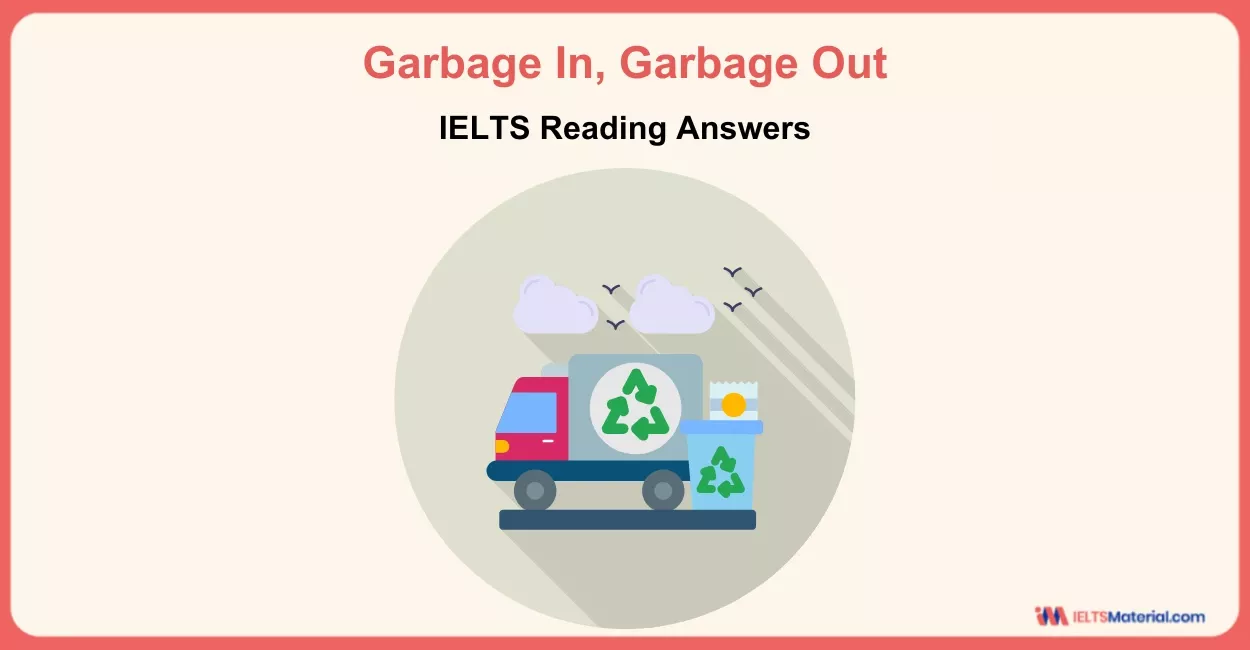Attitude Collocation for IELTS - Advanced Vocabulary for Band 8+
7 min read
Updated On
-
Copy link
Describe your viewpoints on culture, education, or technology by incorporating Attitude Collocation for IELTS seamlessly. Learn band 8+ tips on how to pair the advanced vocabulary with verbs, adjectives, and hyphenated adjectives and improve accuracy.
Table of Contents

Limited-Time Offer : Access a FREE 10-Day IELTS Study Plan!
Attitude Collocation for IELTS can be used to express thoughts, feelings, and opinions in an academic way. The discussion about people's attitudes towards culture, education, environment, or technology will often be asked in the IELTS Exam. Before you start using them in your answer, always remember to first try to recall the context in which these can be used. Such advanced vocabulary can reflect linguistic flexibility and help you develop band 8+ proficiency and vocabulary accuracy.
Connect with our IELTS Trainers to crack your IELTS exam in no time! FREE Demo.
Grammatical Structure in Attitude Collocation for IELTS
By delving into the application of Attitude Collocation for IELTS, you will learn how to convey opinions, emotions, and points of view naturally. Mastering such advanced vocabulary will help you in getting a band 8+. However, you will also need to know the grammatical patterns for these collocations to showcase a higher level of IELTS Vocabulary usage. Remember to observe how the tone and meaning of the sentence would shift with each structure. Below are the three grammatical structures along with the specific collocations.
1. Verb + Attitude
Incorporating Verb + Attitude collocations would help you to discuss the change in people and formations of opinions on certain subjects. When using the expressions for topics like social behavior, education, and world culture, you will be able to convey depth and tone effortlessly. The table below will introduce you to a few of such collocations along wits meaning and examples.
|
Collocation |
Meaning |
Example |
|
have an attitude |
to be one's way of thinking or behaving |
She has a positive attitude towards learning new languages. |
|
develop an attitude |
acquire a certain mindset gradually |
Children sometimes develop an attitude from their parents’ behaviour. |
|
shift one’s attitude |
change one’s view |
With time, people tend to shift their attitudes towards accepting diversity in culture. |
|
show an attitude |
convey a specific mindset through actions |
He was disrespectful and showed an attitude during the discussion. |
2. Common Adjective Collocations
With the help of Adjective + Attitude collocations, you can not only describe but also characterize someone’s opinion or attitude. These word pairings can be used in discussions on work ethics, education, or personality. Let’s dive into the common adjective collocations along with its meaning and examples.
|
Collocation |
Meaning |
Example |
|
positive attitude |
a confident way of thinking |
Keeping a positive attitude helps a person to be less stressed and make them perform better under pressure. |
|
negative attitude |
a resistant mindset |
Having a negative attitude can affect the rate of getting success. |
|
relaxed attitude |
easy-going |
The teacher’s relaxed attitude makes the classroom a stress-free place for students. |
|
professional attitude |
responsible and respectful approach |
Every employee must follow certain professional attitudes at workplace. |
|
open-minded attitude |
willingness to consider new ideas |
A person with an open-minded attitude usually does well in international programs because they adapt easily. |
3. Hyphenated Adjectives + Attitude
Hyphenated adjectives are one of the most effective ways to make your language sound natural and formal at the same time. This will elevate your band scores in lexical resources as you fit them in your sentences when talking about attitudes, cultural shifts, or personal growth. The use of such structures would help indicate your capability to manage compound modifiers and also put focus on your vocabulary control. The table below lists down these collocations with its meaning and examples.
|
Collocation |
Meaning |
Example |
|
forward-thinking attitude |
a modern approach |
The companies that have a forward-thinking attitude often take the lead in the market. |
|
self-critical attitude |
being aware of one’s flaws |
It was her self-critical attitude that made her writing skills better. |
|
problem-solving attitude |
approach focused on finding solutions |
Having a problem-solving attitude is the first aspect a person must have if they want to hold a leadership position. |
|
goal-oriented attitude |
focused on achieving targets |
People with a high success rate usually have a goal-oriented attitude to their jobs. |
|
well-balanced attitude |
calm and fair-minded approach |
He always was a well-balanced attitude even in the hardest of times. |
Prepare yourself with An Exclusive Grammar Workbook: Guide to All Grammatical Woes!
Exercise on Attitude Collocation for IELTS
The practice exercises below will enhance your knowledge after getting to know the grammatical structures in Attitude Collocation for IELTS. The exercises focus on enhancing your memory, creating fluency, and ultimately helping you to use these expressions in IELTS Writing and Speaking responses with confidence.
EXERCISE 1. Use the correct form of these verbs and follow the collocation ‘Verb + Attitude’ to fill in the blanks:
- Change
- Harden
- Shape
- Understand
- Show
- Take
- Typify
1 I’m afraid our nephew has turned out to be a greedy, self-centred young man. His attitude ____________ a complete disregard for his family and others.
2 I’ve always____________ a fairly easy-going attitude towards bringing up my children. Children need freedom to develop and make their own mistakes.
3 John’s total lack of interest in the general election ____________ the attitude of many young people today.
4 What do you think influences our attitudes to marriage? > I think our experiences in childhood____________ our attitudes to marriage and family life.
5 This book examines how attitudes to sex in Britain have ____________ since the end of the Second World War.
6 Attitudes towards the US have ____________ as a result of the recent accidental bombing of civilians.
7 I don’t ____________ your attitude. Why don’t you like Ken? Everyone else thinks he’s a great guy.
EXERCISE 2. Use these adjectives in the sentences:
|
aggressive |
insular |
negative |
|
patronising |
relaxed |
right |
1 A meal with Greg can be really depressing. He’s got such a ____________ attitude to everything.
2 The teachers in this school seem to have a very ____________ attitude to discipline. I thought they’d be much stricter.
3 You can make a career in sales and marketing, but only if you have the ____________ attitude.
4 Why do football fans cause so much trouble? They’ve got such an ____________ attitude to everything.
5 Many US newspapers contain very little international news. This is just one sign of the ____________ attitudes of Americans.
6 He obviously thinks he’s so much better than me, but his ____________ attitude is beginning to irritate me immensely.
EXERCISE 3. Use the concept of collocation ‘Hyphenated adjectives’ and fill in the blanks with these two- and three-part adjectives:
- Slap-dash
- Happy-go-lucky
- Laid-back
- Holier-than-thou
- devil-may-care
1 My boss is so relaxed, but so efficient. I’ve never seen her get worried by anything. She’s got such a __________ attitude towards work.
2 He’s the most exciting tennis player of the decade. His __________ attitude means he takes the kind of risks nobody else would.
3 Our son’s a bit too __________ in his attitude to schoolwork. He usually does it while he watches television. It’s no surprise that his examination results are so poor.
4 My mother-in-law is always disapproving and saying that she would never do this or that. She thinks she’s so morally superior. I can’t stand people with such __________ attitudes.
5 My brother just accepts whatever happens to him and says he never thinks about the future. He’s got such a __________ attitude to everything.
Notes1. Note that attitude is followed by to or towards:
2. Note these noun phrases with ‘attitude’:
3. A complacent attitude is when you stop trying to improve or change things:
4. Entrenched attitudes are ones that people have had for a long time and are unlikely to change:
5. Gung-ho attitudes are usually over-enthusiastic and politically inappropriate:
|
Answers for the Exercise on Attitude Collocation for IELTS
Well done! Now, let's move on and check your answers. Pay attention to the structure of each collocation in different sentences. Such active comparison will clarify your understanding and help you to make these expressions become a natural part of your IELTS preparation. By constantly practising these expressions, you can take a step towards achieving a higher IELTS Band Score.
EXERCISE 1.
- shows
- taken
- typifies
- shape
- changed
- hardened
- understand
EXERCISE 2.
|
1. negative |
2. relaxed |
3. right |
|
4. aggressive |
5. insular |
6. patronising |
EXERCISE 3.
- laid-back
- devil-may-care
- slap-dash
- holier-than-thou
- happy-go-lucky
Enroll into our Free IELTS Webinar and learn more about techniques to improve your grammar for IELTS.
The use of Attitude Collocation for IELTS would help you to understand the exact tone whether it is formal, critical, or positive. In this way, you will build the confidence to convey ideas in both Writing or Speaking tasks. Try to fit these advanced vocabulary while discussing topics such as environment, culture, education, or technology. With this knowledge, you will learn to create a balanced and academic perspective and immerse yourself in these expressions.
Also Check:

Start Preparing for IELTS: Get Your 10-Day Study Plan Today!
Explore other IELTS Articles

Haniya Yashfeen

Haniya Yashfeen

Nehasri Ravishenbagam
Recent Articles

Nitika Gupt

Nehasri Ravishenbagam

Nehasri Ravishenbagam






Post your Comments